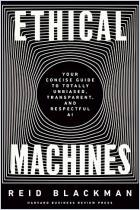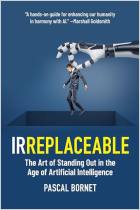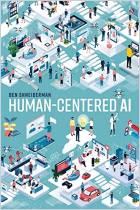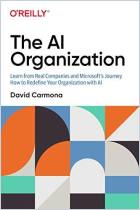
Recommendation
Beena Ammanath, executive director of the Global Deloitte AI Institute, weaves research and real-world examples into her discussion of AI ethics. Her navigation through the complexities of AI and its risks emphasizes the necessity of being transparent to build trust. Ammanath avoids jargon, so general business readers will find her writing accessible. She discusses each element of AI governance, including bias, safety, privacy and accountability. Every chapter provides strategies, systems and oversight methods for incorporating AI ethics into your business decision-making.
Summary
About the Author
Beena Ammanath, the executive director of the Global Deloitte AI Institute, founded the nonprofit Humans for AI.
Learners who read this summary also read
Book
Article
Book
Book
Book

























Comment on this summary or Démarrer une discussion